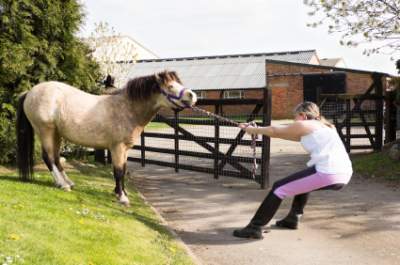 Occasionally Pony Club (Open Show) horses can get an unwanted reputation for misbehaving or of even being dangerous. But is that truly a fair statement? Petra Buckley, BVSc, DipVetClinStud, MVetClinStud, MACVSc, PhD, from the School of Agriculture and Veterinary Sciences at Charles Sturt University in Wagga Wagga, New South Wales and a team of researches set out to answer this question. They completed a study of Pony Club horses over a one year period. The study was published in the Equine Veterinary Journal in March of 2012.
Occasionally Pony Club (Open Show) horses can get an unwanted reputation for misbehaving or of even being dangerous. But is that truly a fair statement? Petra Buckley, BVSc, DipVetClinStud, MVetClinStud, MACVSc, PhD, from the School of Agriculture and Veterinary Sciences at Charles Sturt University in Wagga Wagga, New South Wales and a team of researches set out to answer this question. They completed a study of Pony Club horses over a one year period. The study was published in the Equine Veterinary Journal in March of 2012.
The study consisted of 84 horses from 41 different families. Over a one year period 50 of the 84 horses were reported by the owners as having misbehaved on one or more days during the study period for a total of 251 days. Of those incidents a total of 60% were classified as dangerous (bucking, rearing, biting during cinching, biting and aggressive to other horses, kicking other horses, bolting, kicking child in paddock, attacking person, biting when groomed).
The study looked at three key components: exercise, diet and body condition score. It concluded that the bad behavior may have more to do with how a horse is being kept and less to do with a bad attitude. “This is the first time that horse management has been implicated in misbehavior,” said Buckley. “We suspect that fat horses have excess energy to expend, and this may express in misbehavior.”
Beckley believes that by ” exercising horses at least three times per week, maintaining a healthy body-condition score, and being mindful about feeding supplements to horses that are not regularly exercised,” bad behavior can be curbed.
You can read the published study “Misbehavior in Pony Club horses: Indicent and risk factors” in the Equine Veterinary Journal.
View full article here:
http://feeds.thehorse.com/~r/TheHorse/News/~3/tFZRpqrajU0/viewarticle.aspx